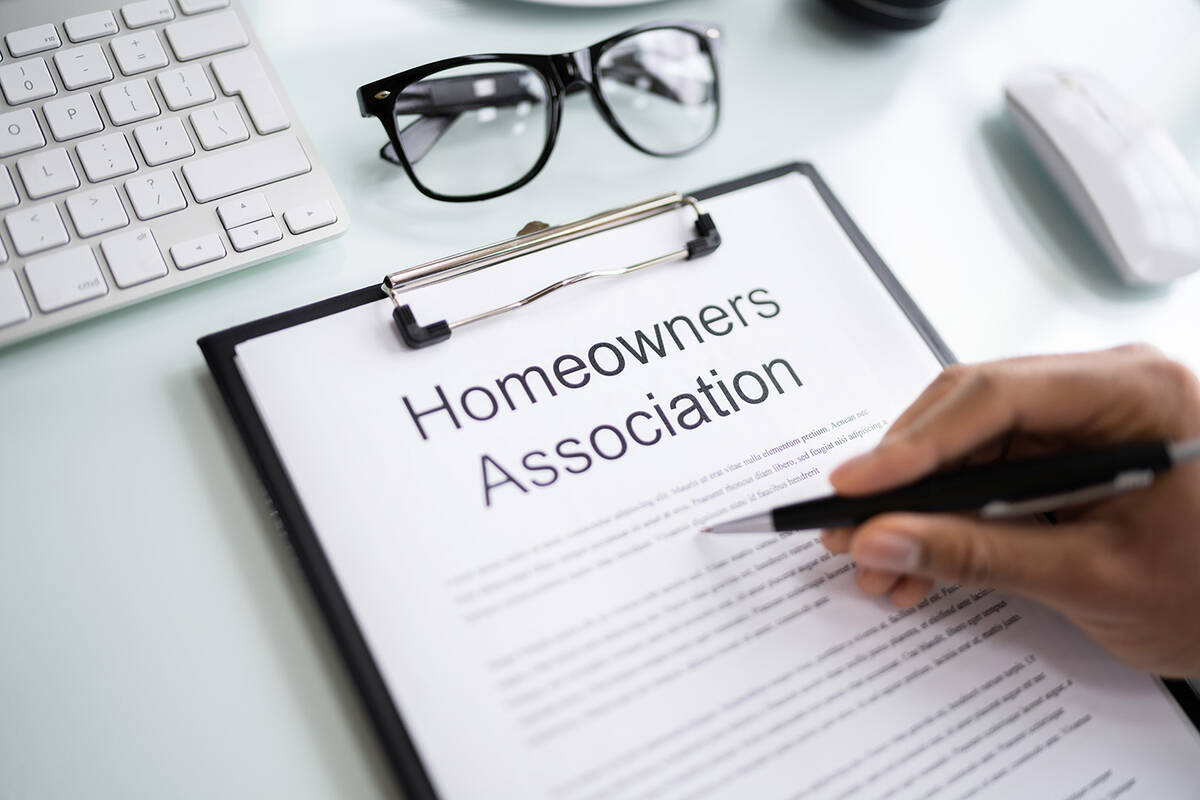HOA rejects plans for large home gets sued for $8M
Correction: The city of Las Vegas’ pet code allows up to six cats or dogs without a special permit. Last week, a reader wrote that their community had a pet restriction that allows a maximum of two dogs and two cats. In my column, it stated the association’s regulation would be superseded by the city code. This statement is incorrect. The association’s restrictions of two dogs and two cats are enforceable, despite the city’s code, because the association’s restriction is less than the city code.
Q: We are a very small homeowners association of townhomes and larger homes. It’s a very strange community. We have 35 townhomes. The townhome dues are for lawn maintenance, utilities, roads etc. The 81 homes only pay for the clubhouse that includes a pool area. We have two architectural review committees: one for the townhomes and one for the single-family homes. A land owner wanted to build a very large house. The ARC declined the design in 2020 as it would have blocked views to Lake Mead. This is stated in our covenants, conditions and restrictions
Not one homeowner was notified of this pending litigation from our management company or board. Even new homeowners were not given this disclosure. This week every owner received a letter from the landowner telling us everything about the lawsuit. They are suing our HOA for $8 million. They are suing us for the difference in the cost of materials. If they could have built in 2020 vs. 2024, it would have been less costly to them. In the letter they stated if they win the lawsuit, each owner will have to pay $60,000. People are scared to say the least. We do have an insurance policy that will cover this suit if the HOA loses, but our premiums will skyrocket and we could potentially be cancelled. My question is should we have known about this before receiving this letter? Is the management company or the board responsible for this disclosure? I was told, under advice of counsel, they were not to let us know.
A: Under NRS116.31083 (7f), at least once every quarter and not less than once every 100 days, the board shall review at a minimum the current status of any civil action or claim submitted to arbitration or mediation in which the association is a party. The homeowners should have been informed about the lawsuit. Often the association’s attorney for the lawsuit will prepare a letter that can be sent to the homeowners with the basic issue(s) and with the insurance information that would defend and cover the association and the homeowners.
Q: (My community has some) unit owners who have been out of their condominiums for three years because of a fire. They have requested a waiver of homeowners association monthly dues beginning Jan. 1.
Is it possible to allow them a waiver and how would the board administer the waiver? We are in agreement to grant the waiver but are confused on how to administratively do it, due to bookkeeping, avoiding recording violations etc.
A: Based upon your email, it appears the condominium units have not been rebuilt. Why not?
For the down units, is the association still paying any common expenses for them, such as management fees, security, insurance, etc? If the association is still paying for some portion of the common elements, your board would not be able to waive the entire assessment for these homeowners.
If your board provides a waiver; on what basis? Has your board developed some policy as to when association fees can be waived as you would be setting a precedent?
Your governing documents should be narrowly construed. Has your board found any section of the covenants, conditions and restrictions that would allow for a waiver as Nevada Revised Statutes 116 does not address waivers of association’s assessments.
How will the waiver impact your budget? How long will the waiver last and when will their condominium units be ready for occupancy?
Finally, you need to discuss this issue with your legal counsel.
Barbara Holland, CPM, is an author, educator and expert witness on real estate issues pertaining to management and brokerage. Questions may be sent to holland744o@gmail.com.












